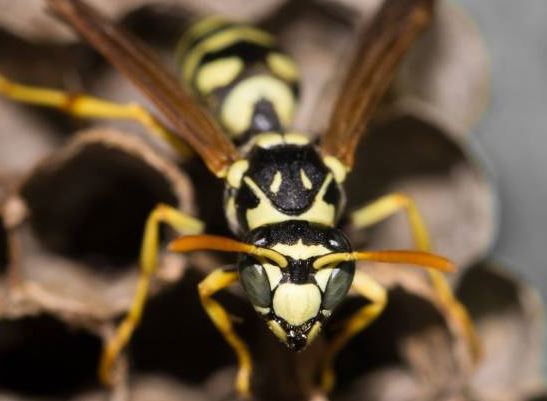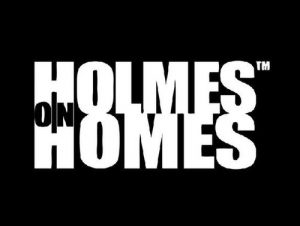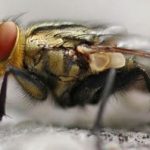When Wasp Season Send You Running for Cover
Fall is Wasp Season in Canada
 It’s heading to fall and in Canada, that means it’s wasp season. In September, wasp nests are as big as they get, and with that comes a host of challenges for home and business owners. Wasps become increasingly more aggressive as the long warm days of summer start fading away. Here at GreenLeaf Pest Control, we handle around a dozen wasp nests daily in response to homeowners who wish to enjoy the last few pleasant backyard gatherings and barbecues before the cold weather sets in. The last thing anyone wants is a painful sting from an uninvited guest.
It’s heading to fall and in Canada, that means it’s wasp season. In September, wasp nests are as big as they get, and with that comes a host of challenges for home and business owners. Wasps become increasingly more aggressive as the long warm days of summer start fading away. Here at GreenLeaf Pest Control, we handle around a dozen wasp nests daily in response to homeowners who wish to enjoy the last few pleasant backyard gatherings and barbecues before the cold weather sets in. The last thing anyone wants is a painful sting from an uninvited guest.
4 Common Wasp Species in Canada
The Yellow Jacket, Bald-faced hornet, Mud dauber and Paper wasp are the most common species in Canada. Wasps are easily distinguished from bees by the narrowing between their front and middle section, which is absent in bees. These are the most common wasps in Northern America.
- Paper wasps – These insects are about one-half to three-quarters of an inch and live in papery nests just a few inches in diameter. Because these wasps eat insects, they are beneficial but may pose a threat when nests are found near human activity
- Hornets – Hornets come in several varieties. Their nests are larger (usually about the size of a basketball) than the paper wasps and are often found hanging from trees and sometimes attics
- Yellowjackets – The aggressive yellowjacket is easily identified by its black and yellow markings. Their paper nests are found in trees and shrubs, on the ground, and sometimes in sheds, garages, and other interior spaces. The problem with the ground nests, is that people don’t realize that there’s a nest until it is disturbed and they have to deal with the aggressive retaliation of the drones.
- Mud daubers – Mud daubers are black or dark colored wasps that use mud to build nests. Unlike other wasps, these solitary insects prey on spiders.
A wasp sting can be deadly, especially if a person is allergic. In fact, more people die from bee and wasp stings every year than from venomous spider and snake bites combined. In fact, in 2014, La Prairie mayor Lucie F. Roussel, died after being stung by an estimated 15 wasps while at her summer cabin in Stratford, Que. 51-year-old Roussel was doing yard work near her lakeside cottage when she inadvertently stepped on a wasps’ nest and was stung multiple times by the angry swarm. Although she had no known allergic reactions to wasp venom, and doctors say it is extremely uncommon for someone to die as a result of insect stings directly, it could be possible for the amount of venom she received to kill someone with an underlying health condition.
Wasps are attracted by:
- fallen fruit under trees
- dirty garbage cans
- strong colognes and perfumes
Prevent these issues to keep wasps away from your home, and avoid the weird and wacky home remedies you are bound to find via Google.
How to Handle Wasp Season in Your Home or Business
Since wasp colonies are now at their biggest, the nests are also bigger and easier to find.
Due to the risks involved, we would caution that you do not remove wasp nests yourself. Visible wasp nests near human activity can potentially pose a problem, especially around people with allergies.
There are several ways to eradicate the problems associated with wasp season, including:
Aerosol Wasp & Hornet Spray – You can apply the spray to the entrance of the wasp nest after dark. Plan an escape route and avoid standing directly underneath the nest.
Mechanical Wasp Control – A more environmentally-friendly way to handle smaller exposed nests, is to cover it with a large and heavy plastic bag late at night, and to cut it loose. Seal the bag shut, and freeze it.
Fake Wasp Nests – The objective of fake wasp nests is to deter the wasps from building a nest nearby. Placed early on in wasp season, they may be effective, but if placed too late, it will have no effect.
Calling a Professional – Always the safest option in dealing with wasp nests and other stinging insects, the professionals use safe, environmentally-friendly methods to deal with wasp nests in the long term.
Removing a wasp’s nest can be a difficult and risky undertaking. If you find one on or near your home, call the experts at GreenLeaf Pest Control for safe removal using eco-sensitive methods. Call us for a consultation at 416.998.9473 or e-mail us at info@greenleafpestcontrol.com.
More rereading on wasps and wasp pest control:
https://www.greenleafpestcontrol.com/category/wasp-control/
https://www.greenleafpestcontrol.com/category/wasp-nest-removal/















You must be logged in to post a comment.